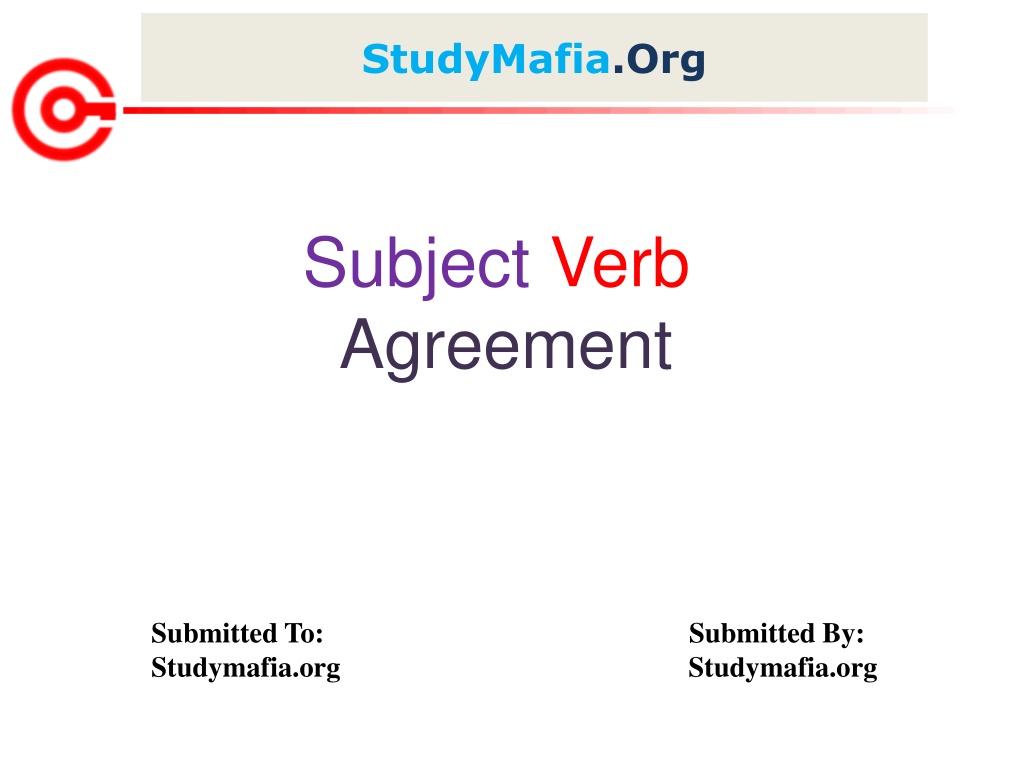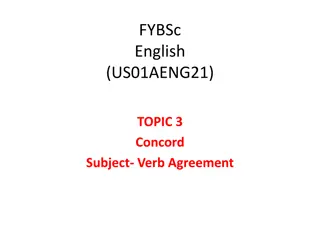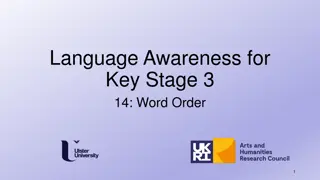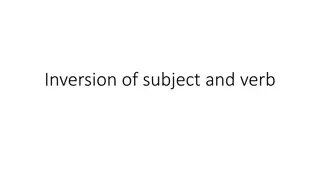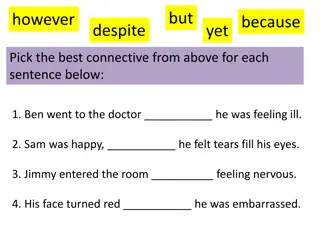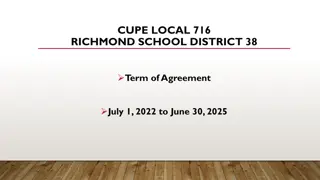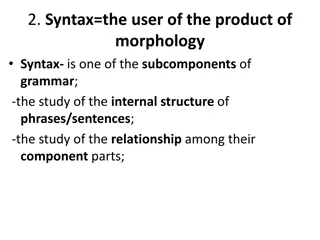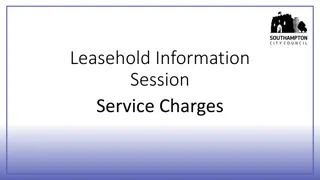Understanding Subject-Verb Agreement in Grammar
Subjects and verbs must agree in number to ensure grammatical accuracy. Singular subjects require singular verbs, while plural subjects demand plural verbs. Various rules and examples illustrate how prepositional phrases, word order, and questions can impact subject-verb agreement.
Download Presentation

Please find below an Image/Link to download the presentation.
The content on the website is provided AS IS for your information and personal use only. It may not be sold, licensed, or shared on other websites without obtaining consent from the author. Download presentation by click this link. If you encounter any issues during the download, it is possible that the publisher has removed the file from their server.
E N D
Presentation Transcript
StudyMafia.Org Subject Verb Agreement Submitted To: Studymafia.org Studymafia.org Submitted By:
Table Contents Definition Introduction Rules of Subject Verb Agreement Conclusion
Definition Subject:- A subject is a part of a sentence that contains the person or thing performing the action (or verb) in a sentence. Verb:- A verb is the action or state of being in a sentence. Verbs can be expressed in different tenses, depending on when the action is being performed.
Introduction Subjects and verbs must AGREE with one another in NUMBER. Thus, if a subject is singular, its verb must also be singular; if a subject is plural, its verb must also be plural.
1. Subjects and verbs must agree in number. Singular subject = singular verb Plural subject = plural verb Cow= singular, eats= singular Ducks= plural, quack= plural *Hint*= SVS- singular verbs have an S Singular yes?- the verb has an S ! Singular no? The S has to go!
2. Dont get confused by the words that come between the subject and verb. The detective who was called to the case is usually very good.
3. Prepositional phrases between the subject and verb usually do not affect the agreement. The biker in this raceis very competitive. The bikers in this raceare very competitive.
4. If a sentence starts with there or here , the subject will always be placed after the verb. There is a meeting today. Here are the results from this past month.
5. Subjects can come after the verb in questions. Does Betty always play with dolls? How are the Bosco sticks today?
6. If two subjects are joined by and, they typically require a plural verb. The puppy and the lady are friends.
7. If two subjects are separated by and refer to the same thing, the verb is singular. Spaghetti and meatballs is my favorite pasta dish.
8. If both subjects are singular and connected by or, nor, neither/nor, either/or and not only/but also, the verb is singular. Sally or Bubba has stolen the scarecrow. Not only the guitar player but also the drummer was soaked with sweat.
9. If both subjects are plural and connected by the words or, nor, neither/nor, either/or, and not only/but also, the verb is plural. Cookies or brownies are nice treats for your teacher.
10. If one subject is singular and one plural and are connected by the words or, nor, neither/nor, either/or, and not only/but also, use the subject that is nearest the verb. Either my sisters or my momhas sent me a present. Not only Bob but also the Smithswant some hamburgers for supper.
11. Units of measurement usually use a singular verb. Six gallons of paint was used on the house. Five dollars is too much for a cup of coffee.
12. Collective nouns usually take a singular verb. The herd is stampeding. The class was ready for the test.
13. Titles of books, movies, novels, etc. are treated as singular. Holeswas one of my favorite books.I want to see the movie.
14. Two infinitives separated by and take a plural verb. To run and to read are my two favorite Free- time activities.
15. Gerunds alone take a singular verb. Gerunds linked by and take a plural verb. Dancing is not something everyone can do as well as I can!
16. If the words each, every or no come before the subject, the verb is singular. Each boy and girl has to take the test. Every frog and toad turns into a prince. No paper and pen is required. (But an apple would be nice!:) Dancing and singing come naturally to me!
17. Most indefinite pronouns take singular verbs. one body thing someone anyone No one everyone somebody anybody nobody everybody something anything nothing everything Little One * Everybody is happy. Another Neither * No one has a dime. Much Either * Nothing was going to help. Each
18. Both, few, many, others, and several take a plural verb. Several need to finish the race. A few have the right answer.
19. When the subject is all, any, more, most, none, or some, this is the ONLY time you must look at the object of the prepositional phrase to determine whether it is singular or plural. Allof the chickenshave laid eggs. Someof the milkhas spilled.
20. Final rule- Remember, only the SUBJECT affects the verb!
Conclusion It is important to ensure that subjects and verbs always agree with each other. The relationship between subjects and verbs lie at the heart of grammatically correct English writing. Subject-verb agreement unifies a sentence and makes it easier to understand.
References Google.com Wikipedia.org Studymafia.org Slidespanda.com
Thanks To StudyMafia.org
